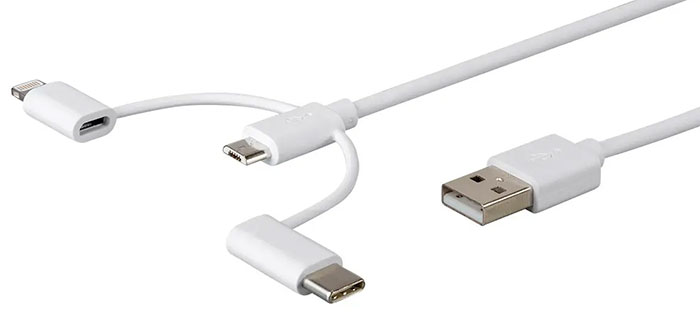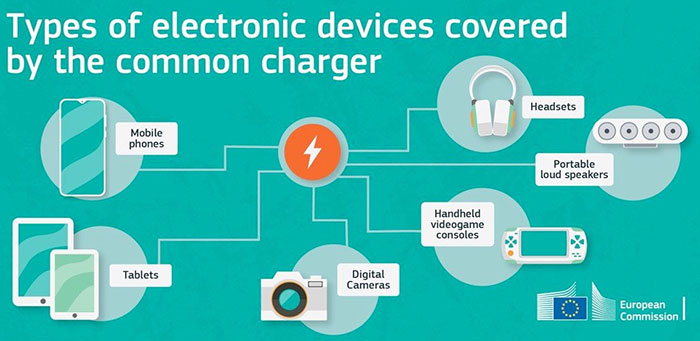On Thursday, the European Commission announced that it had taken an important step to unify the electronics charger standard. Citing e-waste and consumer inconvenience as the biggest reasons behind the decision, the Commission's research suggested that consumers in Europe could save €250 million a year on unnecessary charger purchases, with a unified electronics device charger standard in place.
The EC says that its voluntary approach to transitioning to the common charger standard using the USB Type-C connector has already had great results. In the last decade the policy has helped reduce the number of mobile phone charger connector types down from 30 to three (USB-C, Apple Lightning, and USB micro-B).

For someone in favour of this unified charger policy, there is more good news, as the EC's proposals cover not just smartphones but tablets, cameras, headphones, portable speakers and handheld video game consoles. Some smartphone makers have already started to unbundle chargers from their devices, but this is going to be the form with the new EC rules. If every device you own, old and new, uses the same charger, then it shouldn't be a big problem for most people.

Another important part of Thursday's announcement is the proposed harmonization of fast charging tech. The EC hopes that its directive will "help prevent that different producers unjustifiably limit the charging speed and will help to ensure that charging speed is the same when using any compatible charger for a device." Lastly, the EC wants device makers to improve the information provided to consumers with regard to charging. Enhanced information will help consumers know if their existing charger will work with the new device, and if fast charging will work, and this info is estimated to save consumers a further €250 million a year on unnecessary charger purchases.
HEXUS reported on the draft law regarding a European smartphone charger standard back in January 2020. At the time, Apple was resisting any such pressure, and made it quite clear it didn't want to comply, as "regulation that forces conformity across the type of connector built into all smartphones stifles innovation rather than encouraging it, and would harm consumers in Europe and the economy as a whole". According to the BBC, Apple is sticking to that story, though it continues to equip more and more of its devices with USB-C ports (except the iPhone line, so far).
The EC hopes that its proposed directive will be enacted in 2022, after which EU member states usually have two years to enact the rules, and manufacturers will be given two years to implement/comply - or their products won't be distributed in the EU.
"European consumers were frustrated long enough about incompatible chargers piling up in their drawers," said Margrethe Vestager, Executive Vice-President for a Europe fit for the Digital Age. "We gave industry plenty of time to come up with their own solutions, now the time is ripe for legislative action for a common charger. This is an important win for our consumers and environment and in line with our green and digital ambitions."













